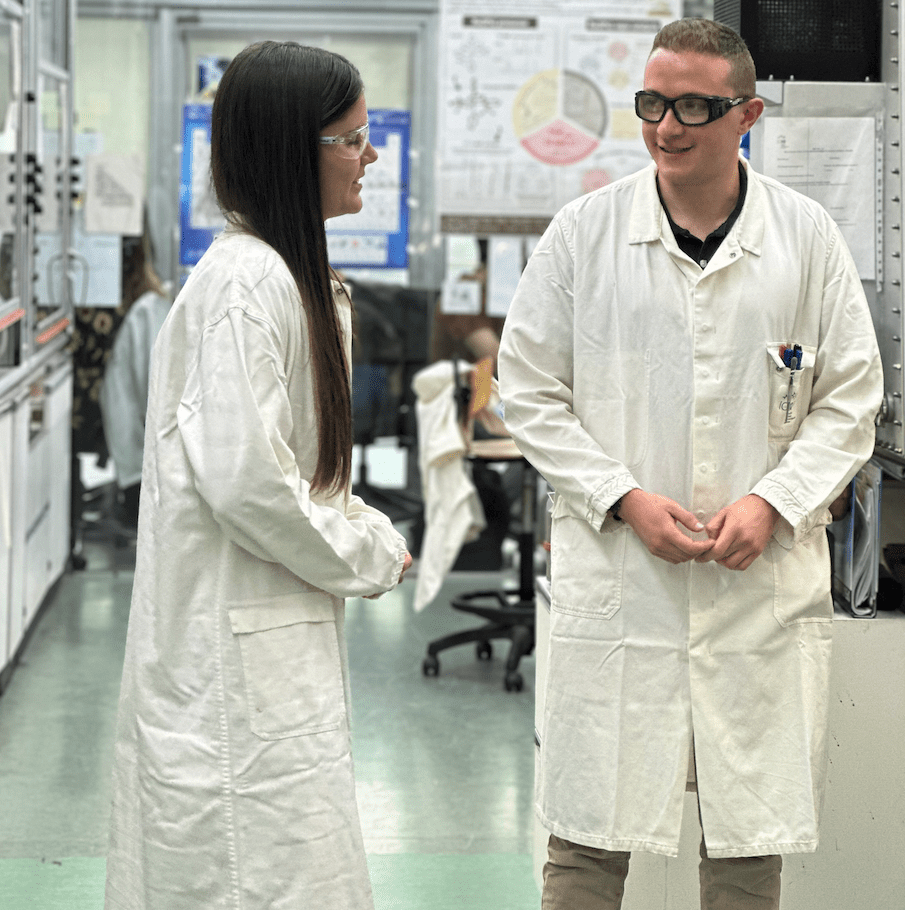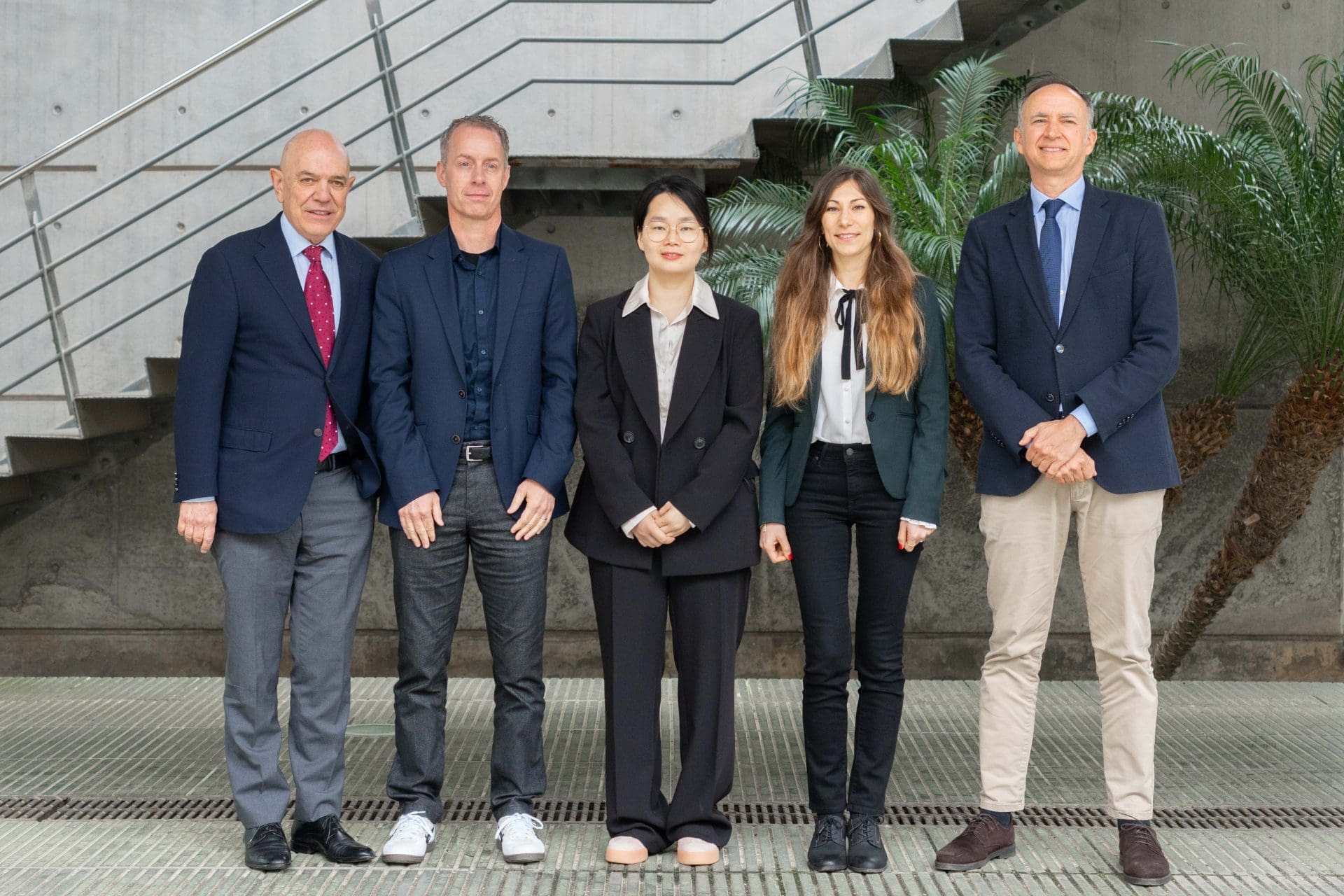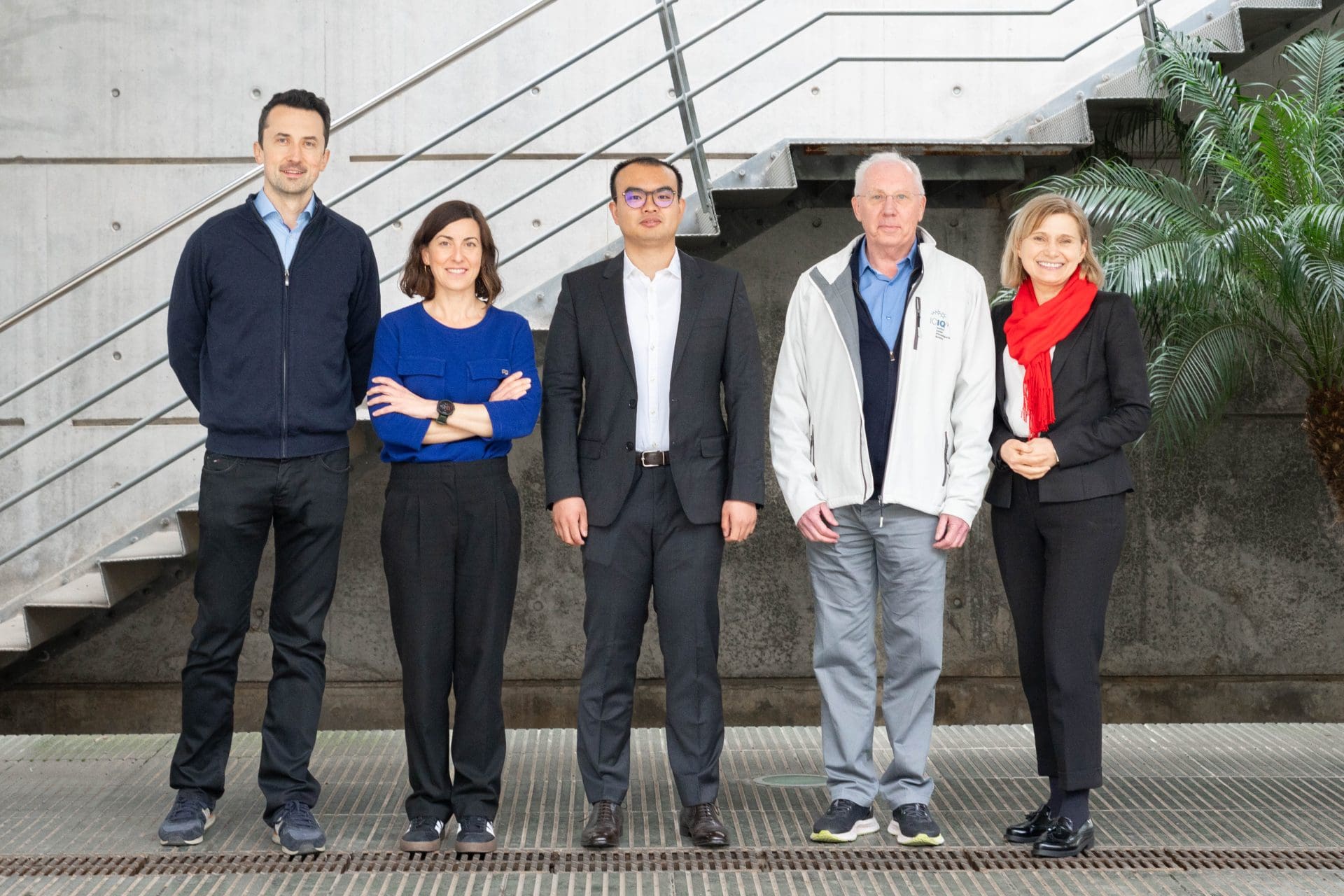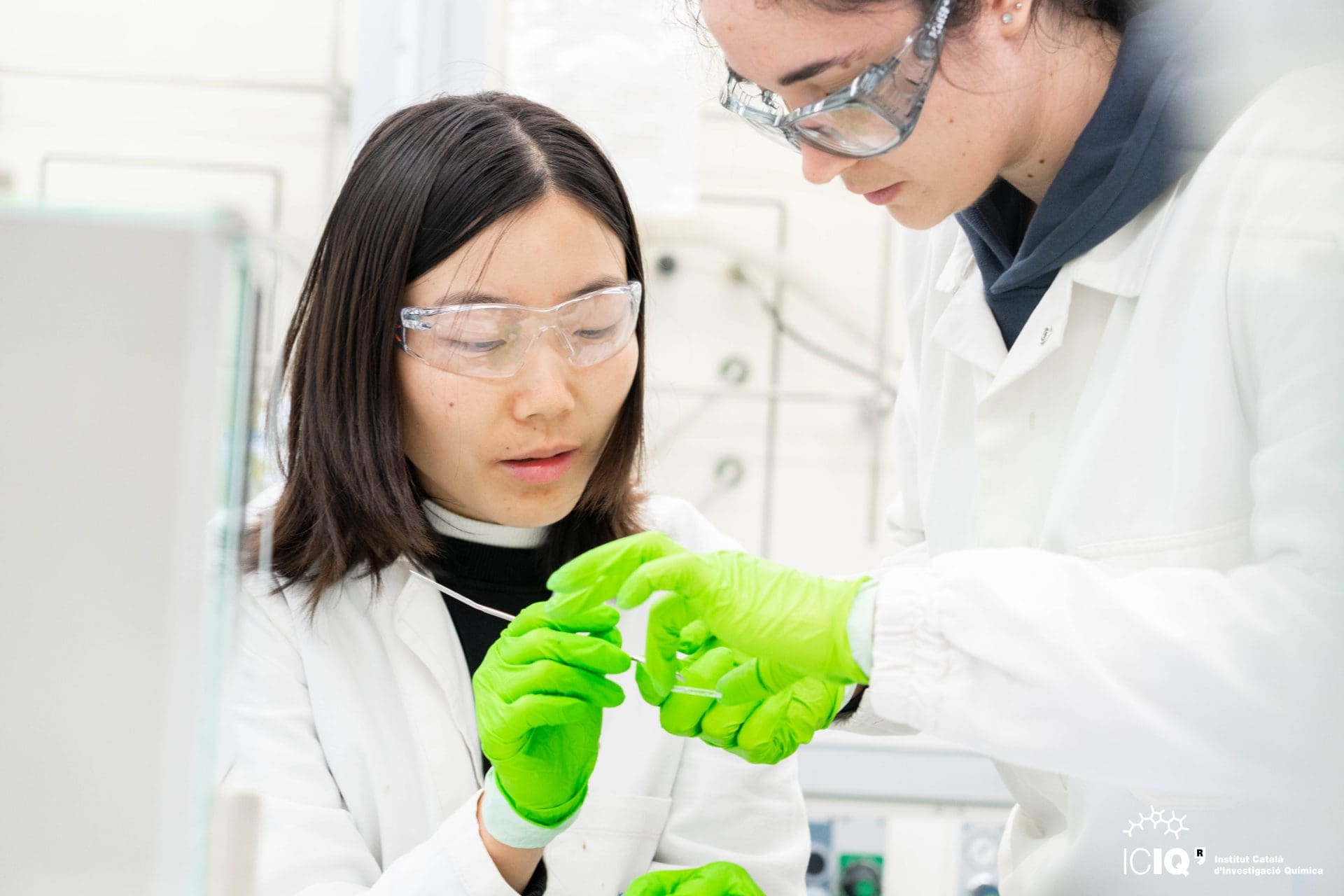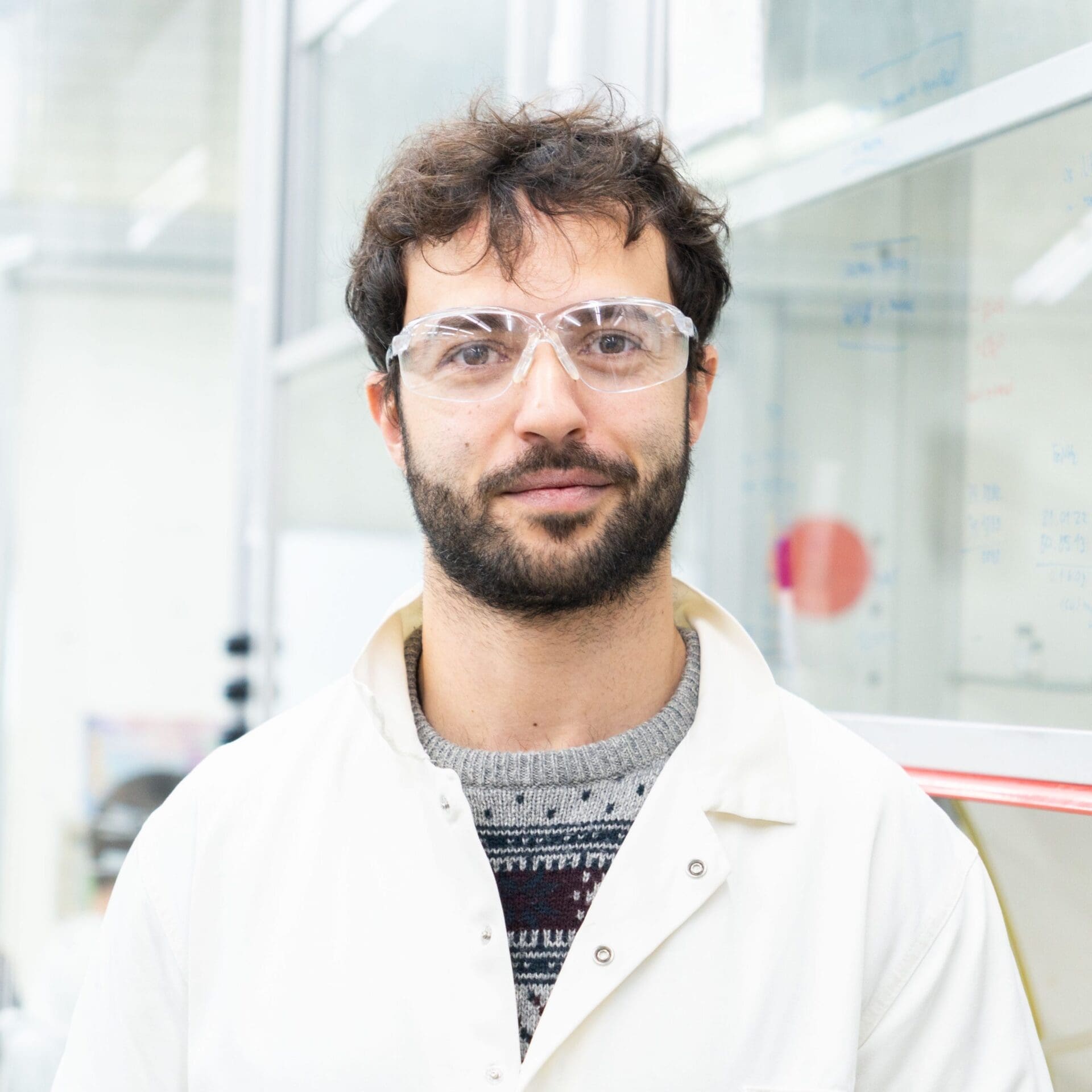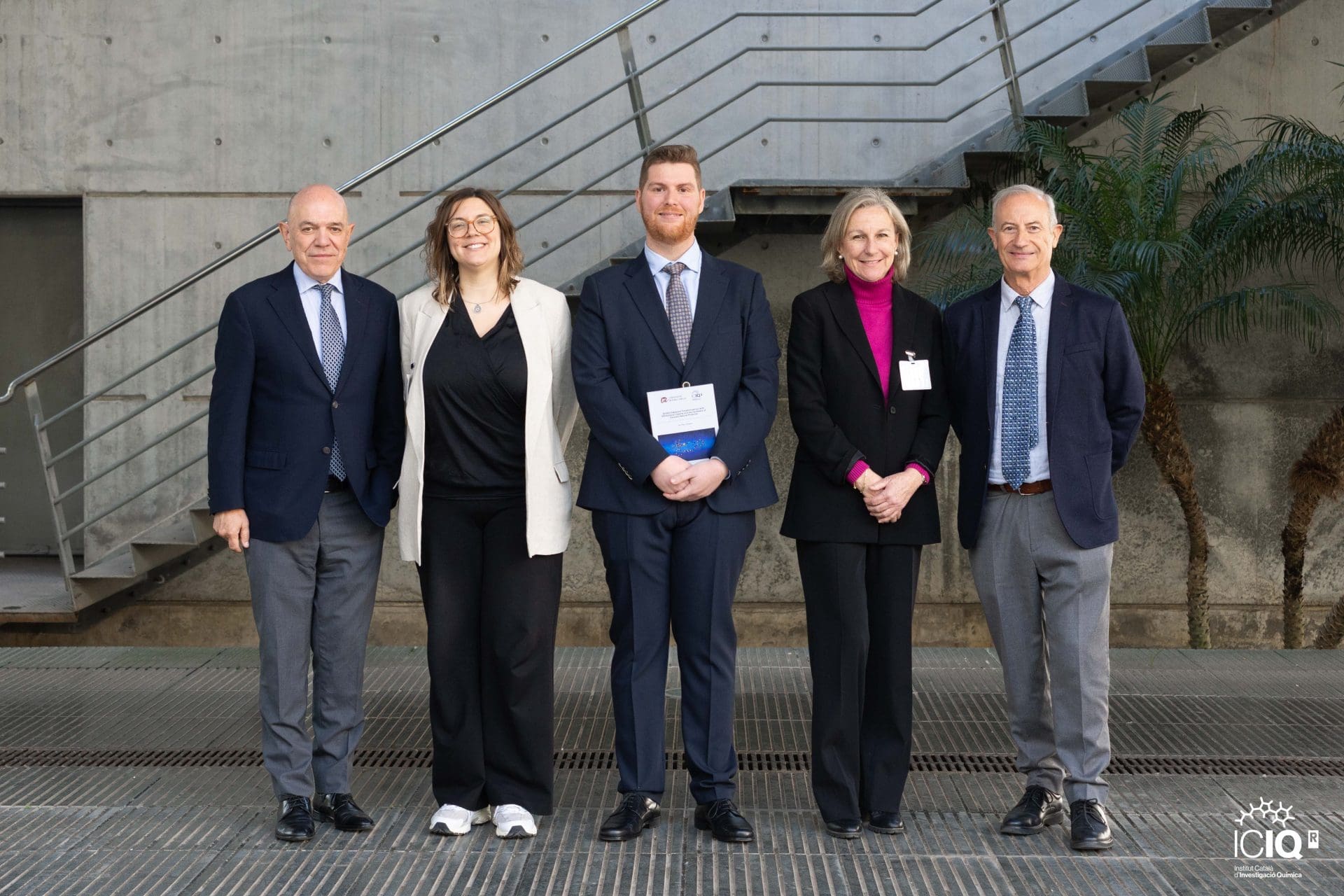Moltes felicitats, Dra. Díaz Ruiz!
Marina Díaz Ruiz, a PhD student who is under Prof. Feliu Maseras supervision, has successfully defended her PhD thesis
7th March 2025 – Marina Díaz Ruiz, a PhD student who is under Prof. Feliu Maseras supervision, has successfully defended her PhD thesis entitled “Bridging the Gap Between Homogeneous Catalysis and Organic Electrosynthesis” publicly on Friday, 7 March.
The members of the evaluation committee were Dr. Ainara Nova (Hylleraas Centre for Quantum Molecular Sciences, Norway), Dr. Mireia Segado, (Universitat Rovira i Virgili), Dr. Ignacio Funes (Universidad de la Rioja, Spain).
Marina Díaz Ruiz is from Rosselló, a town near Lleida in Catalonia. She moved to Tarragona in 2016 to pursue her Bachelor’s degree in Chemistry at URV. During her final year, she spent three months at ICIQ working on homogeneous catalysis. She then completed her Master’s degree online due to COVID and started her PhD in 2021 under the supervision of Prof. Feliu Maseras.
Her PhD is funded by ICIQ and the FPI grant from the Spanish Ministry of Science, Innovation, and Universities (PRE2021-097618).
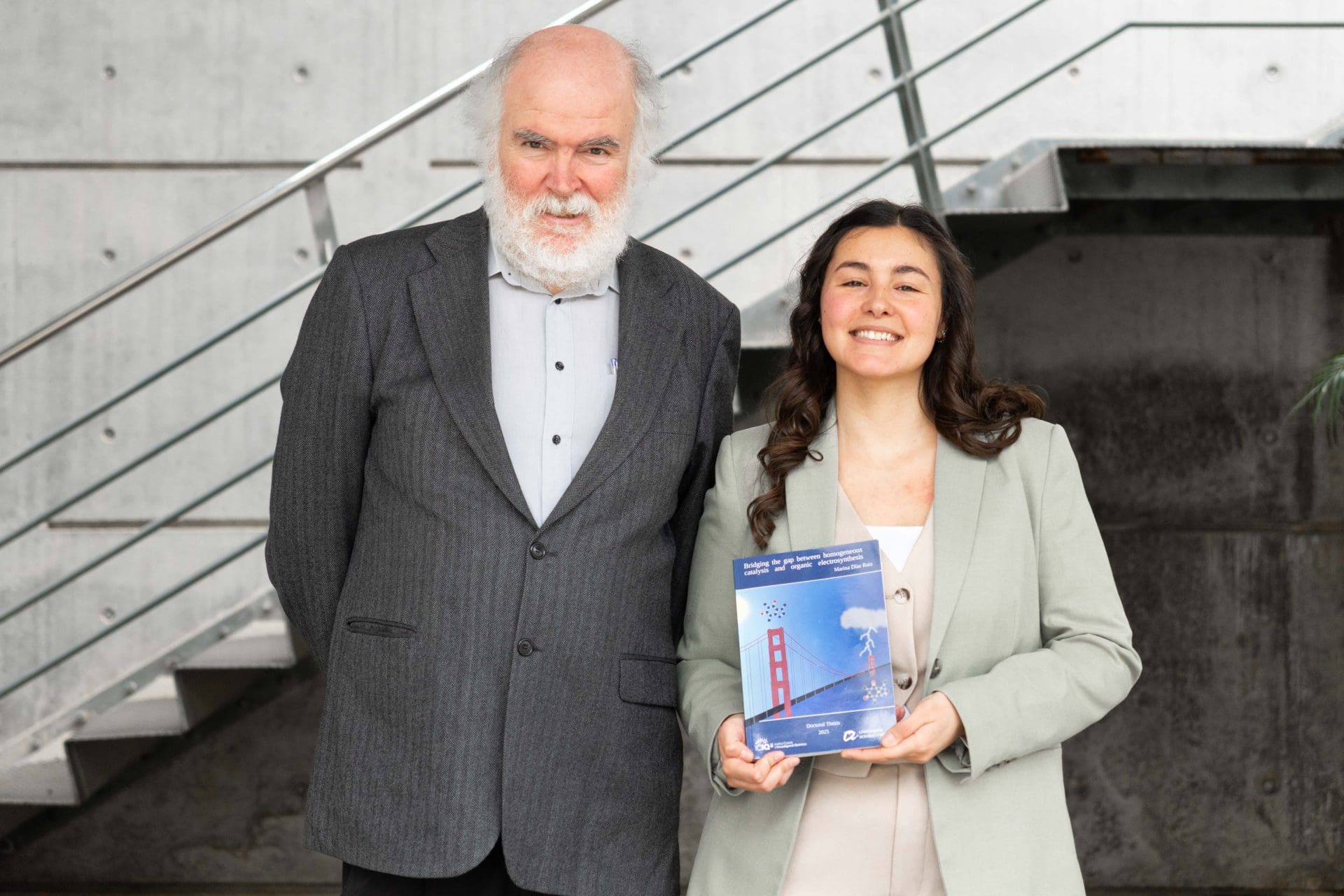
Why did you become a scientist?
I had always been curious about the working mechanisms of everything around me.
What triggered your interest for the subject of your thesis?
Organic electrosynthesis offers an alternative approach for synthesizing valuable compounds for various applications. While these reactions work well experimentally, their computational study is limited. Therefore, investigating them in detail to improve efficiency was an exciting challenge.
What applications can your thesis have in the future?
My thesis presents a straightforward methodology for characterizing organic electrosynthetic reactions, which can be applied to study additional reactions and ultimately improve their efficiency, making them more sustainable and cheaper.
From the lessons learnt (or skills developed) at ICIQ, which one do you value the most?
Among all the skills I have learned during my PhD, I really value the organization skills I have developed in order to keep my data in order to avoid getting overwhelmed.
What ICIQ moment you´ll never forget?
I will certainly never forget all the theoretical thesis defenses (and the celebrations) I have attended. It’s such an emotional moment when someone presents their work and finally feels a sense of relief at the end.
What will you miss the most from ICIQ?
I will miss spending time with all my colleagues (now friends) during coffee breaks, lunchtime, calçotades, christmas lunch…
What advice do you have for someone who’s starting their PhD now?
Don’t stress out right away; things take time, and not everything works perfectly on the first try. And, of course, talk to your supervisor and colleagues if you’re worried about something.
Have you ever been emotional over an experiment/simulation? Why?
Yes, there were times during my PhD when not understanding what was happening or identifying issues with the simulations made me feel somewhat lost. The good part, however, is that there’s always someone in the computational lab willing to help. Even when a problem couldn’t be resolved, I always felt supported.
What is your favourite molecule?
I have always found serotonin an amazing molecule because it is referred to as the hormone of happiness, as it regulates your mood. Normal levels of serotonin make you feel happier and calmer.
If you were a piece of lab equipment, what would you be?
I would be the calendar because it helps me stay organized, keep everything on track, and never forget a thing.
Tell us something about you that people might not know…
I love sewing and doing embroidery.
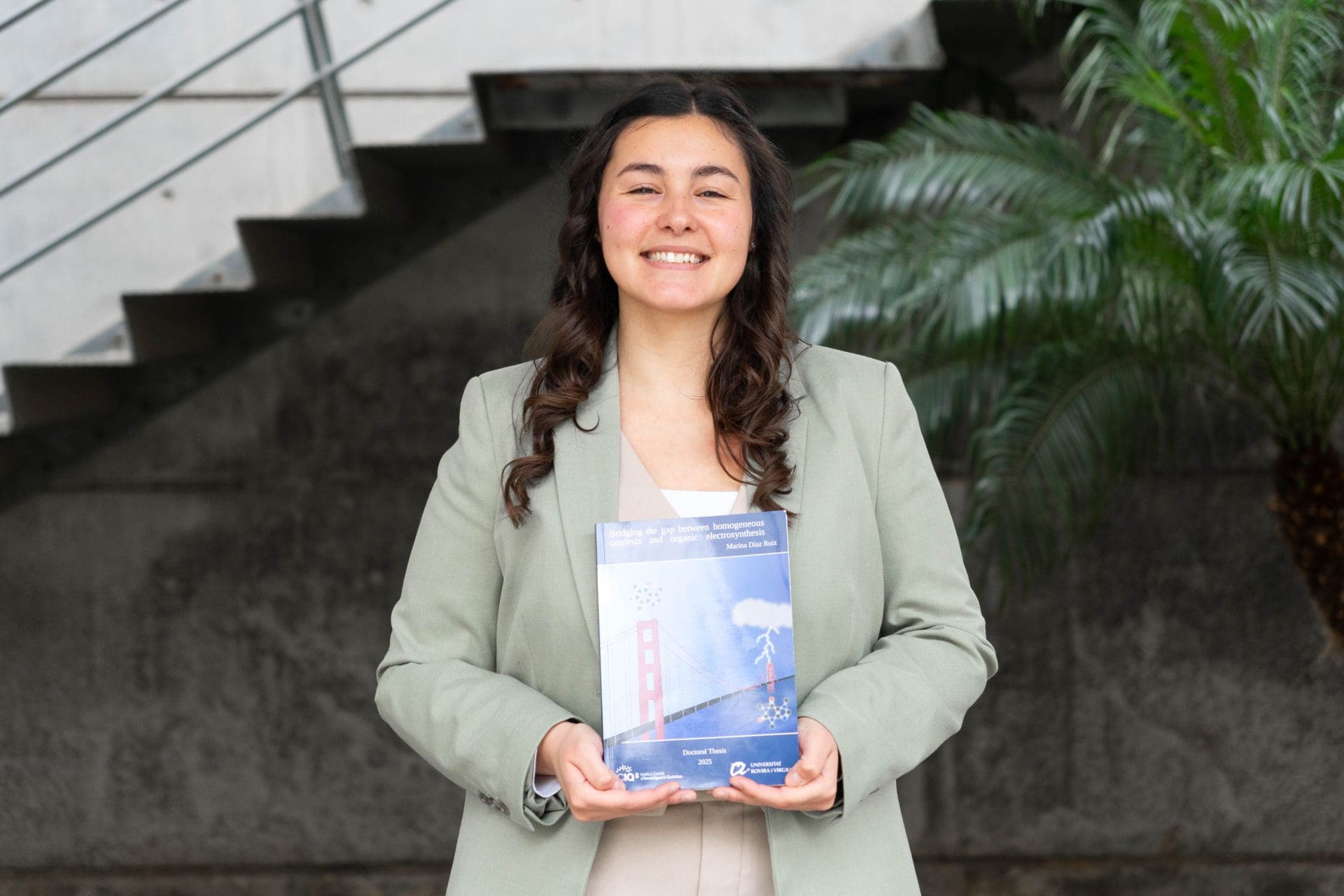
Related news

Let's create a brighter future
Join our team to work with renowned researchers, tackle groundbreaking
projects and contribute to meaningful scientific advancements






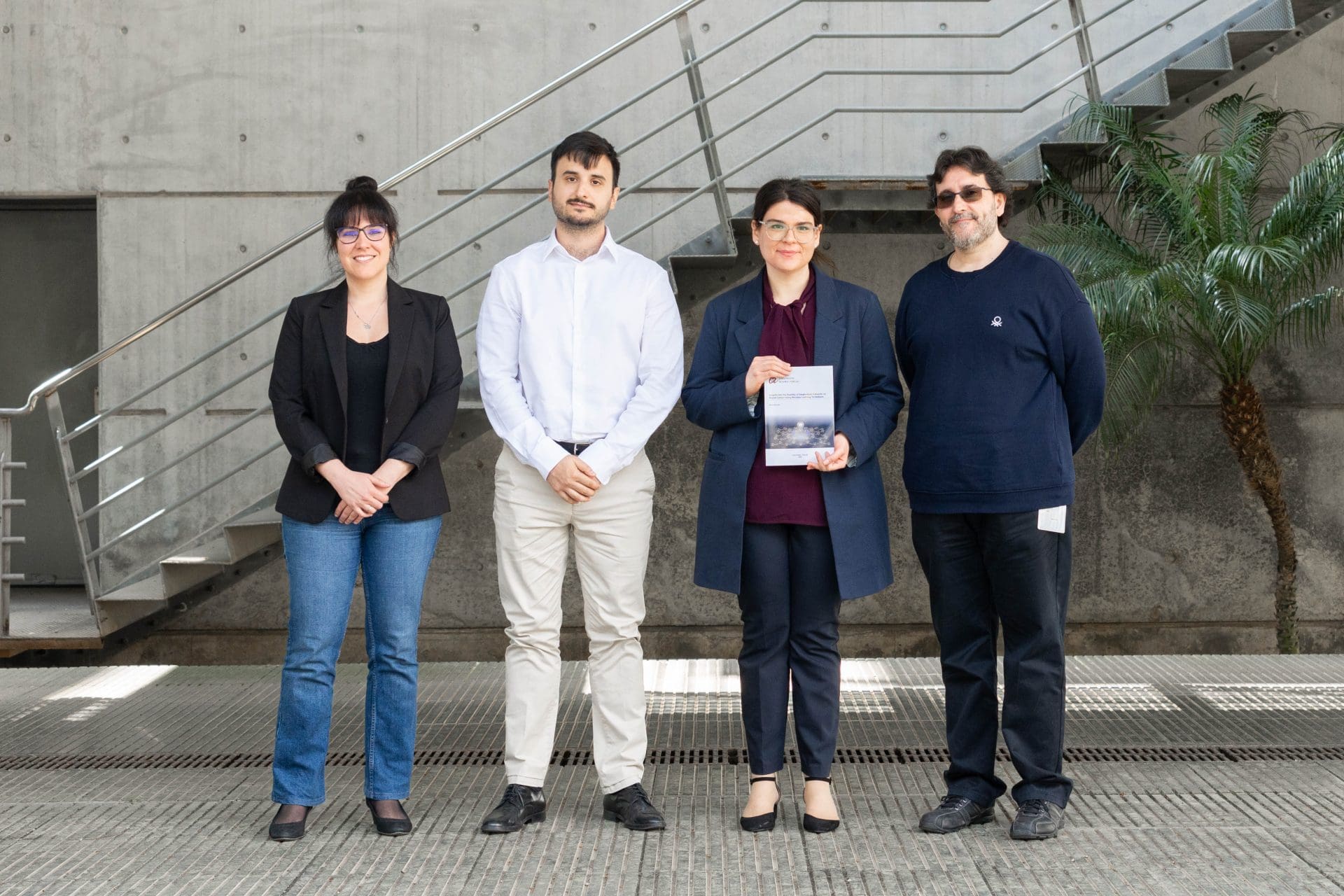
 09-04-2025
09-04-2025 